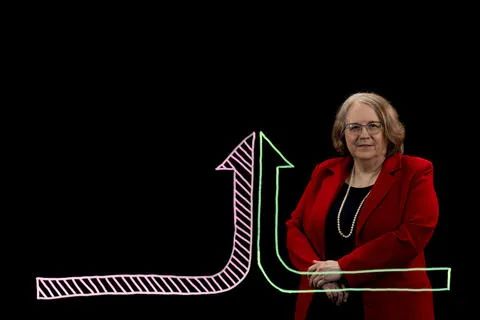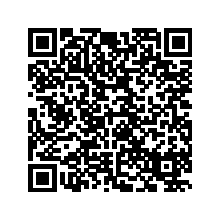Discovery at Carlson·37 Bicultural consumers appeal in paradox brands
Over the last several decades, the U.S. bicultural market has exploded in size. Biculturals now make up approximately one-third of the country’s population and wield more than $4 trillion in buying power. But while American companies are keenly aware of this growth, many still struggle with how to connect with the market.
New research from Carlson School of Management Professor Deborah John offers a solution to that puzzle. From her perspective, it comes down to understanding the psychology of bicultural consumers, particularly the concept of “cognitive flexibility.”

John explains that “cognitive flexibility” is a hallmark of many bicultural consumers. “Biculturals live in two worlds,” she notes. “For example, Hispanic Americans engage with both Hispanic and American cultures, which have contradictory perspectives. Hispanic culture places a heavy emphasis on family and interdependence, while American culture stresses independence and individuality.”
“Biculturals continually negotiate these sorts of differences, which results in greater cognitive flexibility,” she adds. “They can see things from different perspectives and engage with contradictory viewpoints very well.”
How does this relate to marketing? John’s research shows that certain types of brands—which she terms “paradox brands”—are particularly appealing to bicultural consumers. What’s a paradox brand? In short, it’s a brand that has elements that can be considered contradictory in nature. John offers Range Rover as an example. “Range Rovers are seen as rugged, off-road vehicles,” she says. “That’s true. But it’s also a sophisticated, luxury brand.” Contradictory concepts, but it works.

John’s research shows how paradox brands are particularly appealing to bicultural consumers. In one study, her research team visited a Los Angeles local market frequented by biculturals (Hispanic Americans) and a second local market frequented by monoculturals (Americans). After taking a survey, both groups were asked to choose a branded tote bag as a gift for participating in the survey. They could choose a tote bag for a brand called Rugged Sophistication, described as “rugged, outdoorsy, glamorous, and charming” (paradox brand), or a tote bag for a brand named Rugged Outdoors, described as “rugged, tough, outdoorsy, and hardy” (non-paradox brand). The results? “Bicultural consumers chose the paradox brand tote by a wide margin,” says John, “and they chose it more frequently than the monocultural consumers.”
The key takeaway from John’s research? To connect with bicultural consumers, companies should consider building complex brands with seemingly contradictory elements. Paradox brands resonate with bicultural consumers because they’re used to engaging with contradictions in their lives— and because they have the cognitive flexibility to engage with those brands. In other words, brands should lean into the idea of paradox.
John adds that her research has larger implications for the branding realm. “We need to rethink our obsession with laser-focused brands that have a singular, unique selling proposition,” she says. “A brand can have multiple dimensions and meanings, depending on the audience. Companies willing to accept that will be far better prepared to reach the bicultural market.”

Deborah Roedder John
PROFESSOR, CURTIS L. CARLSON CHAIR IN MARKETING
Marketing
EDUCATION:
-
BSBA 1974 Marketing, St. Louis University
-
MBA 1975 Marketing, Kent State University
-
PhD 1980 Marketing, Kellogg Graduate School of Management (Northwestern University)
EXPERTISE:
-
Brand Extensions
-
Brand Dilution
-
Brand Measurement
-
Consumer Response to Brands
-
Children's Consumer Behavior
Biography
Deborah Roedder John is the Curtis L. Carlson Chair and Professor of Marketing at the Carlson School of Management. She received her Ph.D. in Marketing from the Kellogg Graduate School of Management, Northwestern University. She is an expert in consumer behavior and specializes in two main areas: (1) consumer responses to brands and brand strategies; and (2) children's consumer behavior. Her work has been published extensively in top marketing journals—including the Journal of Consumer Research, Journal of Marketing Research, Journal of Consumer Psychology, and Journal of Marketing. Awards for her research include the Outstanding Doctoral Dissertation Award in Consumer Psychology awarded by the American Psychological Association. Her research has been featured in media outlets such as the New York Times, Financial Times, and Business Week.
Professor John's contributions to the discipline have been widely recognized. She is among a small group of academics elected as a Fellow of the Association for Consumer Research and a Fellow of the Society for Consumer Psychology. She is a member of the Editorial Boards of the Journal of Consumer Research, Journal of Marketing Research, Journal of Marketing, and Journal of Consumer Psychology, and has received awards as a top reviewer at these journals. In addition, she has served as an Associate Editor at the Journal of Consumer Research and the Journal of Consumer Psychology. She has received the Lifetime Service Award from the Journal of Consumer Research, the top journal for consumer behavior research. She is also a Past-President and Board Member of the Association for Consumer Research.




